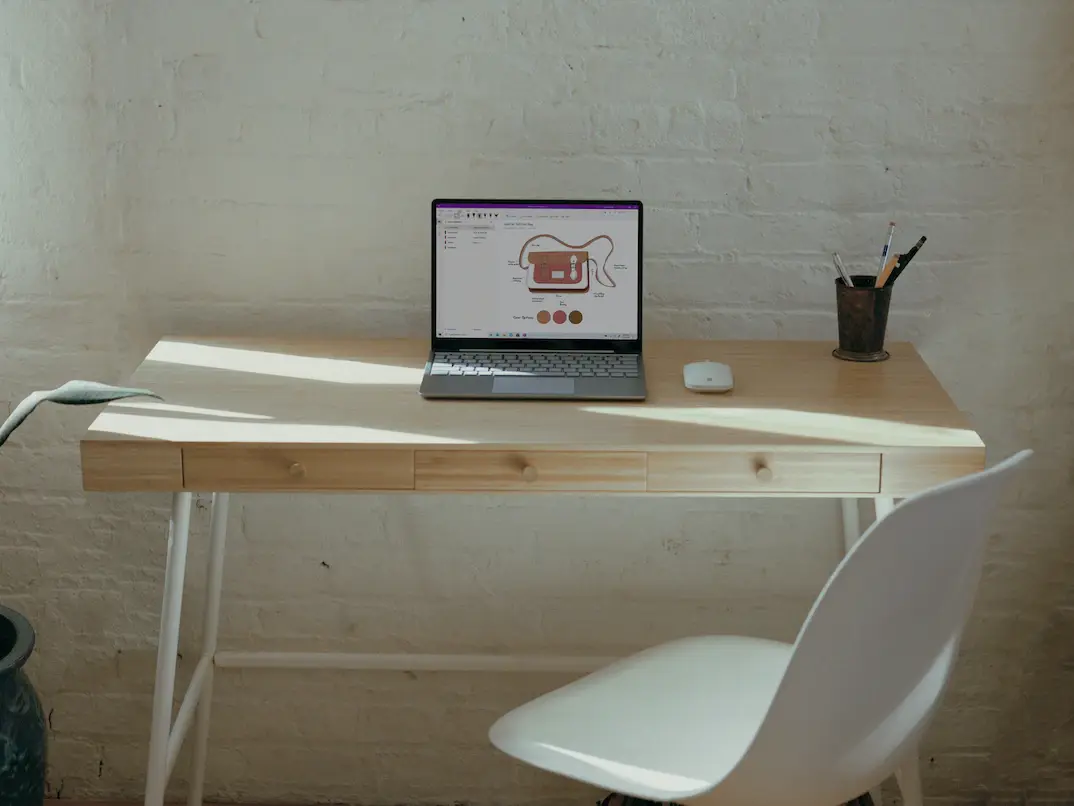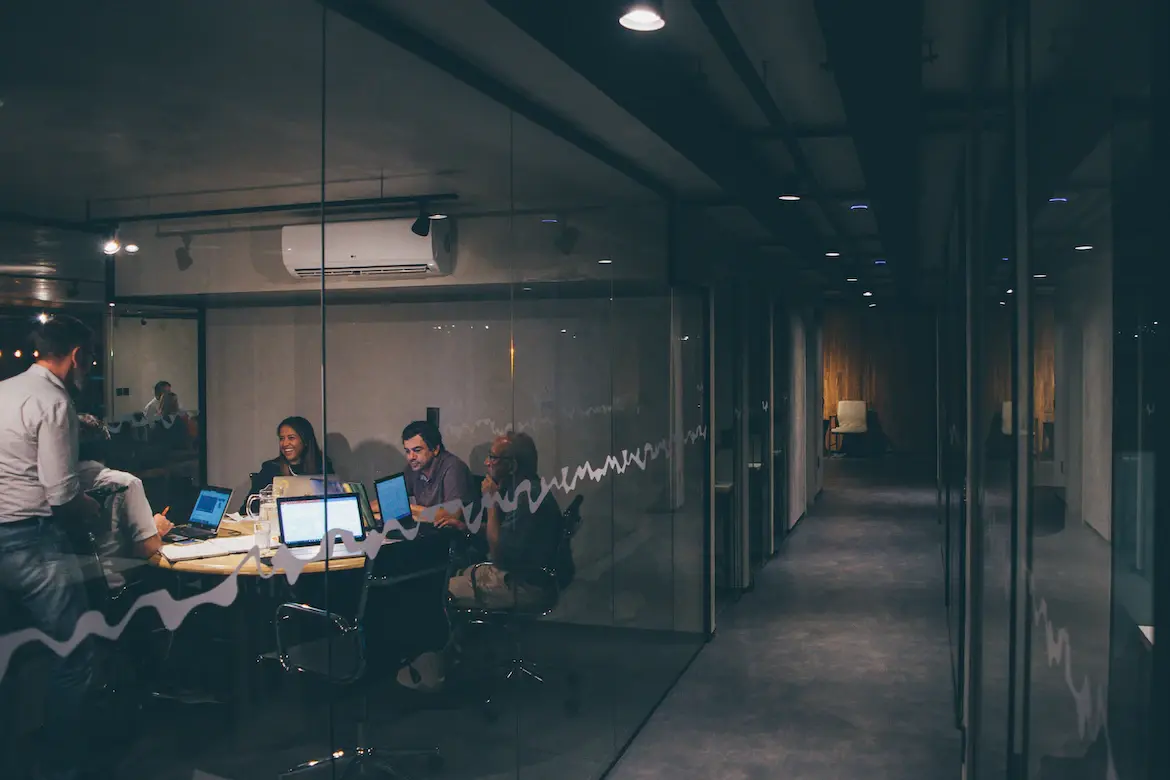Differences Between Working From Home and the Office

In the past few years, the global workforce has experienced a monumental shift, with more and more people trading in their cubicles for the comfort of their living rooms, kitchen tables, or even cozy cafes.
Key Takeaways:
- The average American spends 19% of their annual income on commuting.
- Remote work avoids commute, helping employees save an average of 72 minutes a day.
- The best way to work depends on your personal preference.
The COVID-19 pandemic acted as an accelerator, catapulting the work-from-home trend into the mainstream at an unprecedented pace.
Advantages and Disadvantages of Working From Home and the Office
But what are the actual differences between working from home and the office? Is it all just about pants (or lack thereof) and the absence of those dreaded commutes? Well, honestly, there's more to it than meets the eye.
Join us as we embark on a journey to unravel the intricacies of working from home and the office.
Advantages of Working from Home

Working from home has become more than just a trend—it's a full-blown lifestyle revolution.
With advancements in technology, flexible work arrangements have become increasingly common, enabling us to break free from the traditional office setting.
So, what exactly makes working from home so enticing?
Flexibility in work schedule
Working from home allows you to tailor your day to suit your natural rhythms. It gives you more control over your schedules, resulting in higher job satisfaction and better work-life balance.
You’ll have no problem attending a family event or running errands in the middle of the day, as long as you’re putting in the expected number of hours into work.
Cost savings
Can’t ignore the sweet sound of saving some hard-earned cash, can we?
Working from home can be a game-changer for your wallet. You won’t have to worry about the daily expenses anymore, such as:
- Gas.
- Transportation fares.
- Eating out, etc.
According to reports, the average American spends 19% of their annual income on commuting every year.
That’s a LOT, especially at this time when we can work from right from our homes.
These small savings can add up over time, allowing you to allocate your funds towards more meaningful goals, like saving for a dream vacation or investing in personal development.
Reduction in commuting time
Commuting time is the bane of many people's existence.
Rush hour traffic, crowded trains, and the eternal quest for a parking spot can be soul-crushing. But this is a battle you no longer have to face!
Because remote work is saving commuters an average of 72 minutes a day. If that isn’t impressive, we don’t know what is!
Comfortable work environment
Honestly, the days of rigid office chairs and uncomfortable desks are the past.
You can now design your workspace to maximize both comfort and productivity. Whether it's a standing desk, a cozy corner with natural light, or a home office adorned with plants and inspiring artwork, the choice is yours.
In addition to this, creating a dedicated workspace within your home can help establish a boundary between work and personal life, allowing you to mentally switch gears when needed. This separation is crucial for maintaining a healthy work-life balance.
Fewer distractions
Raise your hand if you've ever been sidetracked by:
- A chatty coworker.
- Impromptu meetings.
- Or the never-ending stream of office noise.
Well, working from home offers a reprieve from these distractions and provides a conducive environment for deep focus and productivity.
With fewer interruptions, you can dedicate your undivided attention to your tasks and projects. This means higher efficiency and quality of work.
Disadvantages of Working from Home

While the idea of rolling out of bed and cozying up in your favorite nook with your laptop might sound like a dream come true, there are some downsides to this seemingly idyllic setup.
We want to be honest here and not glorify remote work all the time. So let’s shed some light on the truth.
Isolation and lack of social interaction
Humans are social creatures, and the water cooler chats, office banter, and team lunches provide more than just a break from work—they foster a sense of belonging and camaraderie.
But remote work comes with the potential for isolation and the lack of face-to-face interaction with colleagues.
However, there are still a great group of people in this world that prefer such isolation. For them, yes, this would be an advantage!
Difficulty in separating work and personal life
It's all too easy to find yourself checking emails during family time or working late into the night. The lack of physical separation between work and home can disrupt work-life balance and lead to burnout.
That’s why establishing boundaries becomes crucial in maintaining your well-being and preventing work from taking over your personal life.
Increased responsibility for managing time and productivity
With great flexibility comes great responsibility. When you work from home, you become the master of your own time and productivity.
While this freedom can be liberating, it also requires self-discipline and effective time-management skills.
Without the structure and accountability of the office environment, it's easy to succumb to:
- Distractions.
- Procrastination.
- Or the temptation to work too much.
To combat these challenges, establish a daily routine, set clear goals and deadlines, and leverage productivity tools such as time trackers and task management apps.
Also, creating a dedicated workspace that’s free from distractions will help you stay focused and motivated throughout the day.
Limited access to resources and equipment
Working from home may mean you're no longer surrounded by the abundance of resources and equipment available in the office.
Need a high-speed printer, specialized software, or a conference room for a team meeting? These conveniences may not be readily available at home.
However, technology has come a long way in bridging this gap. There are virtual collaboration tools, cloud storage, and video conferencing platforms that help to keep remote teams connected.
But still, it may not be as convenient for a lot of people as being in the office.
Technical difficulties
Technology can sometimes be a thorn in the side of remote workers.
Because a spotty internet connection, software glitches, or computer malfunctions are all inevitable.
Advantages of Working in an Office

It's time to lace up those shoes, grab your favorite coffee mug, and head back to the land of cubicles and water coolers. Because let's face it, there's something special about the camaraderie, collaboration, and good ol' office banter that can't be replicated at home.
Although working in an office may seem like a blast from the past in this age of remote work and digital nomads, it still holds a multitude of advantages.
We’ll jump right into those!
Collaboration and teamwork
There's an undeniable magic that happens when a group of talented individuals come together in a shared space.
In an office, you have the opportunity to collaborate and brainstorm with your colleagues, fostering creativity and innovation. Face-to-face interactions allow for:
- Real-time feedback.
- Quick decision-making.
- And seamless teamwork.
A shared space just provides an environment that fuels collaboration and amplifies the collective brilliance of a team.
Access to resources and equipment
Working in an office grants you easy access to tools and technologies that may not be readily available at home.
This abundance of resources can:
- Streamline your work processes.
- Enhance efficiency.
- And enable you to tackle complex tasks with ease.
Even better, having dedicated IT support on-site can swiftly address technical issues and keep your workflow uninterrupted.
Clear separation between work and personal life
One advantage of working in an office is the clear boundary it creates between your work life and personal life. When you leave the office at the end of the day, you physically and mentally step away from your work responsibilities, allowing you to recharge and focus on your personal pursuits.
This separation can help maintain a healthy work-life balance, preventing work from encroaching on your personal time and vice versa.
Social interaction and networking opportunities
An office is a melting pot of diverse personalities and backgrounds. And being there provides you with ample opportunities for face-to-face social interactions, which are invaluable for:
- Building relationships.
- Cultivating networks.
- And expanding your professional circle.
The office environment nurtures social bonds and fosters a sense of community. These connections can lead to mentorship opportunities, collaborative projects, and even future career advancements.
Professional work environment
The office exudes professionalism, providing an environment that cultivates focus, motivation, and a sense of purpose.
When surrounded by colleagues who are equally dedicated and driven, it creates a collective energy that propels everyone forward.
Disadvantages of Working in an Office

While the office environment offers collaboration, networking, and a professional setting, it's important to recognize that it's not all sunshine and rainbows.
Everything has a downside, and for the office, it ranges from the potential for office politics and limited flexibility to the daily commute and the distractions that come with an open office layout.
Commuting time and costs
One of the major downsides of working in an office is the time and cost associated with commuting.
Commuting can be a draining and time-consuming endeavor, as it often comes with being stuck in traffic or squished like sardines in a crowded train.
Less flexibility in work schedule
Working in an office often means adhering to a fixed schedule, with specific start and end times.
This lack of flexibility can be challenging for those who thrive in alternative work patterns or have personal commitments that require a more adaptable schedule.
While some companies offer flexible work arrangements, the traditional office setting may limit your ability to adjust your work hours to accommodate personal needs or optimize your productivity. This can create a sense of rigidity and hinder work-life balance.
More distractions
The office is a buzzing hive of activity, with constant movement, conversations, and the occasional impromptu celebration.
While this energy can be invigorating, it also brings its fair share of distractions that can derail our focus and productivity. Distractions are everwhere, including:
- Colleagues stopping by for a quick chat.
- Office-wide meetings.
- The allure of social media, etc.
Limited control over the work environment
When working in an office, you may have limited control over the physical work environment.
You may find yourself in an open office layout where the noise level can rise, or in a space with poor ventilation that leaves you feeling stuffy and drained.
The lack of control over lighting conditions, such as excessive fluorescent lighting, can contribute to eye strain and fatigue as well.
Potential for workplace politics
Office politics—the murky waters where egos clash, alliances form, and maneuvering becomes an art.
It creates:
- Tension.
- Stress.
- And a less-than-ideal work environment.
Navigating office politics requires finesse, emotional intelligence, and the ability to build positive relationships. It's essential to:
- Remain professional.
- Avoid gossip or favoritism.
- And focus on your work performance and contributions.
Conclusion
As we weigh the pros and cons, it's crucial to consider our personal preferences, work style, and individual circumstances when deciding between working from home and working in an office.
Some thrive in the flexibility and solitude of remote work, while others thrive in the social and collaborative atmosphere of an office. There is no one-size-fits-all solution, and it's essential to find what works best for us.
In the end, keep in mind that both working from home and working in an office have their own unique set of advantages and disadvantages. The key is to embrace the benefits of each and proactively address the challenges they present.
Each journey is different, and it's up to you to make the most of the opportunities that lie ahead.
Follow us for more knowledge about remote work
We'll be publishing new articles every week, and new social media content every day. If you enjoyed this article, follow us on Twitter or Linkedin, and stay in the loop. Share our content and drop us a comment there. Let's help more people learn about remote work.


